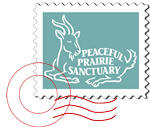 If his mother could see him now—her beloved boy, alive and well, and cherished, in a land of love and plenty. If she could see the way he sauntered out of the rescue trailer, swift and surefooted as a deer, the way he glided into this welcoming world as if he recognized it, as if he remembered its essence of love and fairness. If she could see the way the new world embraced her son, with such warmth and benevolence, the way it opened its arms to him and promised everything she had fought so desperately—and failed so bitterly—to secure for him: the peace to live, the freedom to flourish.
If his mother could see him now—her beloved boy, alive and well, and cherished, in a land of love and plenty. If she could see the way he sauntered out of the rescue trailer, swift and surefooted as a deer, the way he glided into this welcoming world as if he recognized it, as if he remembered its essence of love and fairness. If she could see the way the new world embraced her son, with such warmth and benevolence, the way it opened its arms to him and promised everything she had fought so desperately—and failed so bitterly—to secure for him: the peace to live, the freedom to flourish.Last time she saw him, it was the dead of December. He was two days old—a thumb of a child wobbling around on impossibly long legs, casting the light of his enormous eyes on the dark world that had replaced the perfect promise of the womb, and suckling her with such avid hunger, such astonished gulps, such joyous urgency, as if drinking not the mere milk of a mortal mother, but life itself.
He was sleeping and hiccuping in his full-bellied dreams when the men came to take him away. She charged them even before they walked into her pen. She stomped, she kicked, she bellowed her terrible threats and terrors, her mighty fears and furies, her pitiful pleas and supplications, all in one anguished breath, she put her battered body between her infant and his attackers, she struggled frantically to protect him, to keep him out of harm's way, to simply keep him, and give him the love, the peace, the goodness she had never known. They took him anyway.
One man sidled in the back of the stall while the other tormented her with an electric prod and, a moment later, her baby was gone, and she was alone again with the wound of a mother's worst loss, and the unbearable experience of being forced to fail, once again, in the only way that mattered to her: to protect her child.
Six months later, she is still making sweet milk for her lost boy, and every drop of it is still being plundered by humans. She is pregnant again, with another rape child who will be torn from her shortly after birth—to be killed, if he's a boy, or forced into a life of misery, if she's a girl. She will never get to nurse, nurture, and watch any of them grow. But one found his way to freedom.
If she could see him now, with Spring on his breath, and endless plains opening underfoot, and a community of free beings to belong to, and a whole life to live, love, and flourish. He is exactly where his mother desperately wished him to be, in a peaceful world that, even though she has never seen with her own eyes, she saw, even more clearly and powerfully, with her heart when her son was born, she felt it in the way any mother would—as the burning certainty that peace was necessary and essential for her baby's survival—and, for a day, the glow of that heart's vision was more real to her, and more solid, than the bone-crushing burden of her bitter existence.
She, who had known nothing but anguish, abuse and deprivation, felt with the clarity of love, that another world was not only possible, it was as real as her baby's life, indeed, it was necessary for her baby to live. She felt this other world in her own fervent determination that her son be safe, be free, be loved. And that fierce imperative to protect and provide for her baby, to create—by the power of her own body and soul—the haven where her child would be safe and loved, was the closest she ever got to the vegan world, the sanctuary, that her only surviving son was entering now, on Mother's Day, a day when her tormentors celebrate motherhood.
If she could see him now—her nub of a child, grown into a tall, lanky boy: Clifford!— strutting around on impossibly long legs, casting the light of his enormous eyes on the radiant world that has replaced the dark betrayal of the dairy farm, and drinking in its perfect promise with such avid hunger, such astonished gulps, such joyous urgency, as if living—and seeing—for two.
Click for more pictures of Clifford
Joanna Lucas
© 2013 Joanna Lucas
________________________________________
If living ethically is important to you, please remember that there is nothing humane about “humane” animal farming, just as there is nothing ethical or defensible about consuming its products. When confronted with the fundamental injustice inherent in all animal agriculture—a system that is predicated on inflicting massive, intentional and unnecessary suffering and death on billions of sentient individuals—the only ethical response is to strive to end it, by becoming vegan, not to regulate it by supporting “improved” methods of producing dairy, eggs, meat, wool, leather, silk, honey, and other animal products. For more information, please read The Humane Farming Myth. Live vegan and educate others to do the same.

<< Home